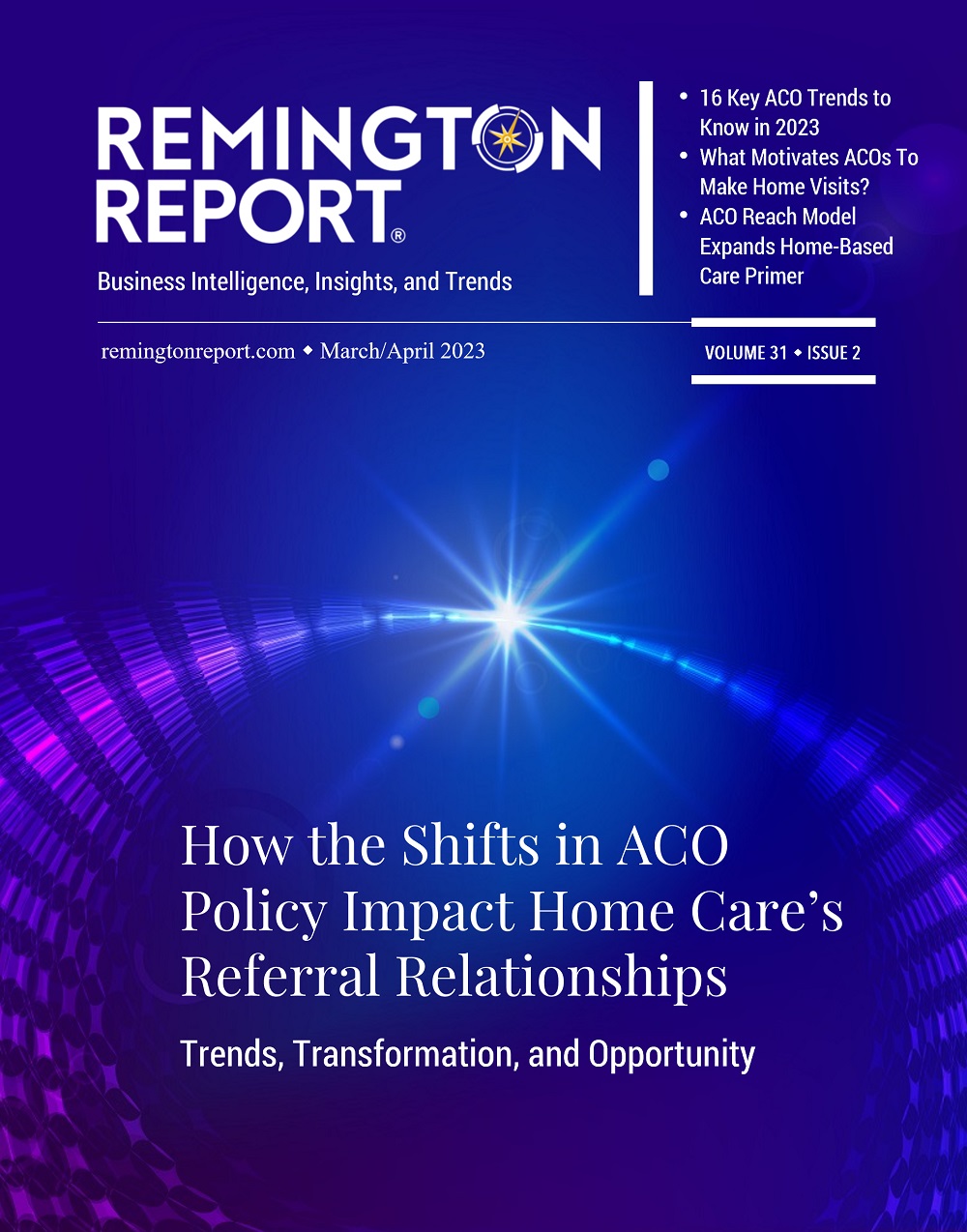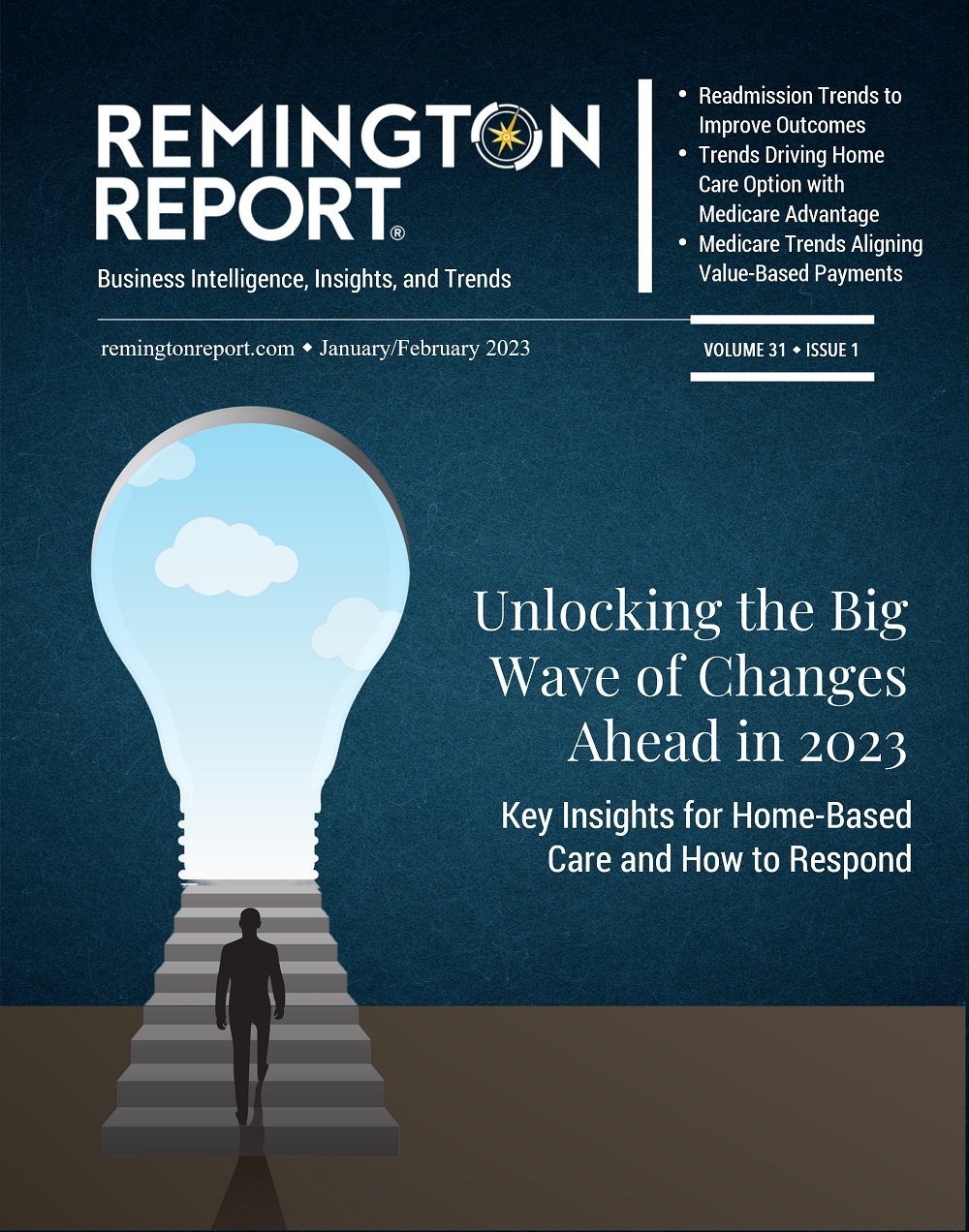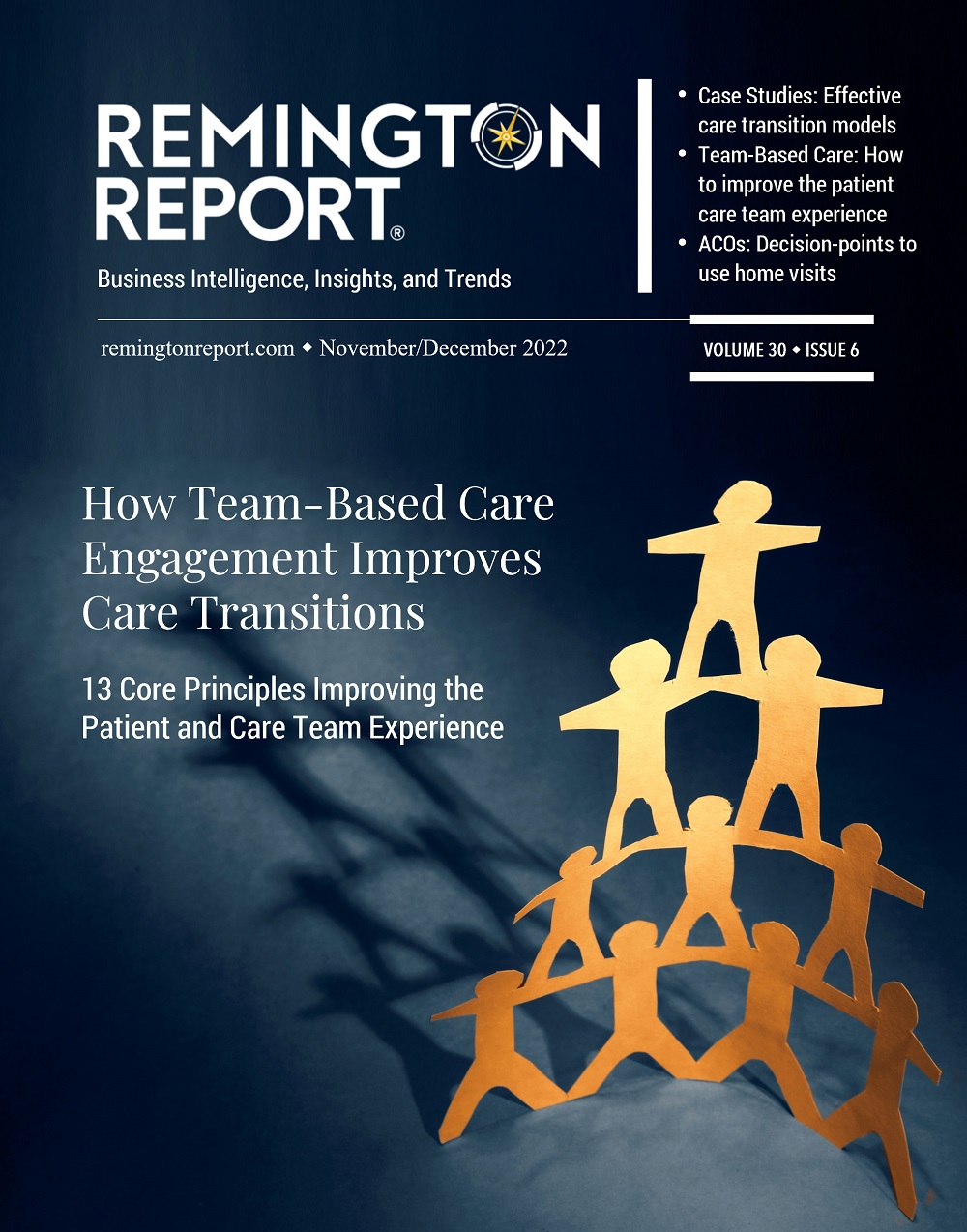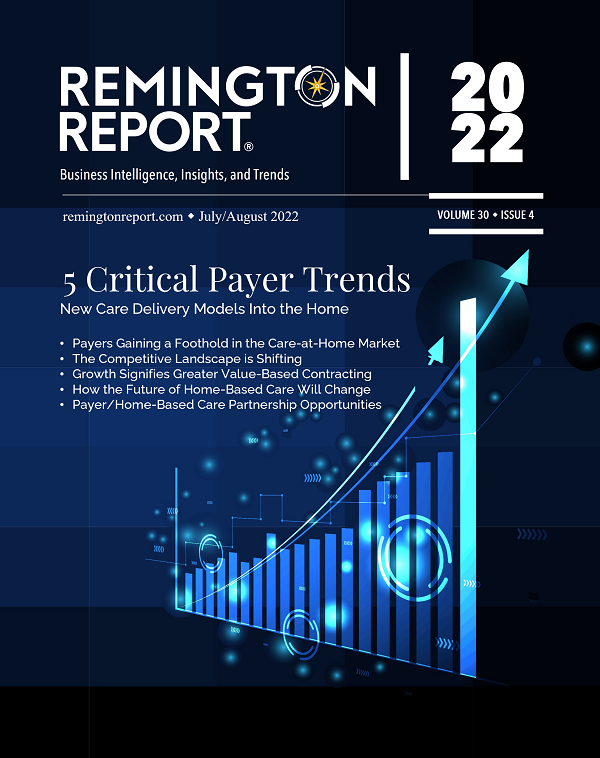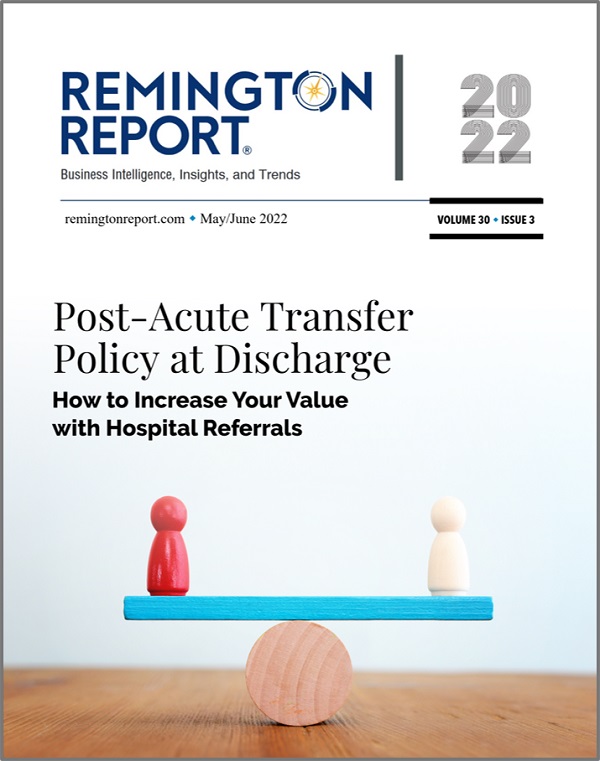Study Shows Better Post-Acute Care Outcomes with Home Health
May/June Remington Report Articles Provide Deeper Insight Into PACT
- Discharge Planning: How is a Post-Acute Transfer Defined?
- Data Point: Discharge Planning Codes Identify Where the Patient is Being Referred
- Post-Acute Transfer to a Home with Home Health Services
- OIG Report: Medicare to Overpay More Than $267 Million
- Fast Facts About the Post-Acute Transfer Policy
- Post-Acute Care Transfer Policy: The Overpayment for Discharges
- Empowering Your Clinical Team to Increase Patient and Family Engagement
A recent study published in the American Journal of Managed Care home health vs no post-acute care was associated with reduced 30-day readmissions and better outcomes.
The study explored the Post-Acute Care Transfer (PACT) policy’s implications for improving the value of care for an entire episode (admission to 90 days post discharge) for patients discharged to home health instead of to home without home health services for the Medicare Advantage population.
The objectives of this study were to assess:
- whether discharge to home health following a PACT policy-eligible inpatient stay, compared with discharge to home, is associated with better outcomes or lower expenditures, and
- whether the impact of home health differs among subpopulations defined by type of inpatient stay and exposure to care management.
Compared with 15,071 patients discharged to home, 4,160 patients discharged to and receiving timely home health services were 60% less likely to be readmitted within 30 days and 37% less likely at 90 days. Additionally, total expenditures were 11% lower from the time of admission to the 90 days post discharge.
“Results should encourage clinical entities to consider home health for patients with relatively short hospital stays who do not require intensive post-acute care, particularly patients with surgical admissions.”
Results of the Study
The CMS post-acute care transfer policy reduces hospital reimbursement for shorter-than-average stays for certain diagnosis-related groups, if patients enter post-acute care.
- Among policy-eligible patients discharged to home health or home, home health was associated with a 60% reduction in 30-day readmissions and a 37% reduction at 90 days; a statistically significant relationship persisted in the surgical subpopulation.
- Total expenditures (admission through 90 days post discharge) were 11% lower with home health.
Results should encourage clinical entities to consider home health for patients with relatively short hospital stays who do not require intensive post-acute care, particularly patients with surgical admissions.
Why is This Study Important to Your Hospital Referral Partner?
As mentioned in several articles in this May/June issue of The Remington Report, hospitals are paid differently with the Post-Acute Transfer Policy (PACT). For example, a transfer to home with the provision of HH services is paid using a graduated per diem rate when the patient’s stay is assigned to a MS-DRG subject to the post-acute care transfer policy and the discharge is to home under a written plan of care for HH services provided within 3 days of discharge and the services are related to the hospital admission based up to and including the full DRG.
Under the CMS post-acute care transfer (PACT) policy, hospitals receive reduced payment for shorter-than-average stays if the discharge is considered a post-acute transfer, defined as discharge to a skilled nursing facility, a long-term acute care hospital, a distinct hospital unit (eg, a long-term care or rehabilitation unit), or hospice, or discharge with orders for home health services. The policy rationale is that hospitals should not be paid at the usual DRG rate for shorter stays when the total episode includes post-acute care.
Don’t Miss This Additional Resource
Other Articles You Might Enjoy
Best Practices for Effective Strategy Execution
Effective strategy execution is crucial for success, as even the most well-crafted strategies can fail if not properly implemented.
5 Reasons Why a 5-Year Strategic Plan May Pose Challenges
Five-year strategic plans in home care often encounter several challenges due to the dynamic nature of the industry.
Understanding Adaptive Leadership in Home Care’s Complex World
Adaptive leadership is not a fixed set of rules or practices; rather, it's a mindset and a skill set that empowers leaders to thrive in turbulent times.






